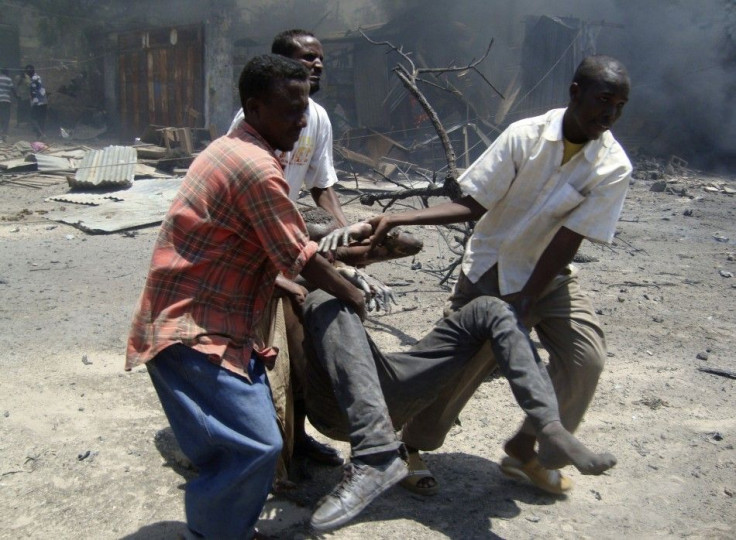Why Somalia's Al-Shabab Promises More Attacks and Death

The Somali rebel group responsible for the suicide bombing Tuesday that killed 70 people has vowed that attacks will increase day by day.
Somali's President Sheikh Sharif Sheikh Ahmed has called for three days of mourning, after a man identified as Bashar Abdullahi Nur -- a Somali student and member of al-Shabab -- drove a car-load of explosives into a gate outside a government ministry in Mogadishu.
Al-Shabab, an insurgent group with strong ties to al-Qaida, was driven out of the Somali capital by African Union troops in August but still has a powerful reign in many parts of the country. The Islamic militants are most notorious for hijacking food aid donated to famine victims.
The most recent reports indicated that al-Shabab has turned away thousands of people leaving their homes in search of food and work, sending hungry Somalis back to their farms and likely to their death.
The ongoing famine in Somalia is the worst humanitarian disaster the world has seen for 60 years. Tens of thousands of people have died from malnutrition in just a few months, while at least four million more are still in danger. Thousands of Somalis leave their home everyday, hoping to find a better life in over-crowded refugee camps in Kenya and Ethiopia.
Because of al-Shabab's al-Qaida backing, the United States has refused to send any humanitarian aid to regions under the rebel's control. Sadly, these are the areas most affected by the famine.
What does al-Shabab want?
We wish to inform the Muslim people that the campaign against infidels will be back-to-back and by God's grace will increase day by day and will increase in the coming hours, spokesman Ali Mohamud Rage stated, according to the Associated Press. I will give a good tiding to the infidels: You will face big and broad blows.
But what al-Shabab really wants is anarchy. The militant group thrives in the lawlessness of Somalia. The country has been rife with political instability since overthrow of dictator Said Barre in 1991, and in the past 20 years there have been no less than 14 attempts to create a working central government.
The country is currently under the mandate of the Transitional Federal Government, which was established in 2004, but the TFG has a loose grasp at best of many parts of the country. Somalia's north, which is infamously home to violent pirates, is primarily self-governed by local tribes.
The south, including the six famine areas, is under the control of al-Shabab, and al-Shabab would like to keep it that way.
The Transitional Federal Government was scheduled to end in August, but its tem was extended for one year in June. In September, state politicians signed papers to establish a new political system by next year. By attacking government installations, al-Shabab is almost assuring that any new regime will be undermined.
If all Shabab has to do is prevent the TFG from exercising control over the capital, then these kind of attacks are all they need, Ken Menkhaus, an associate professor at Davidson College in North Carolina, told the Los Angeles Times.
Attacks on government buildings and personnel are not isolated to Somalia. Insurgent groups around the world are using the technique to destabilize powers and to shatter public confidence in national governments. Militants in Nigeria, Pakistan, Afghanistan, Iraq and even Mexican drug cartels have all targeted police and government workers.
Around 9,000 A.U. peacekeepers are currently patrolling Mogadishu. It was the same force that expelled al-Shabab a month ago, but Tuesday's bombing indicates that the Somali government is not yet strong enough to quell the rebel force.
With the elections looming, the only thing that is clear about Somalia's near future is that unless al-Shabab is under control, the massive suffering caused by the Horn of Africa famine will not be abated.
© Copyright IBTimes 2024. All rights reserved.





















